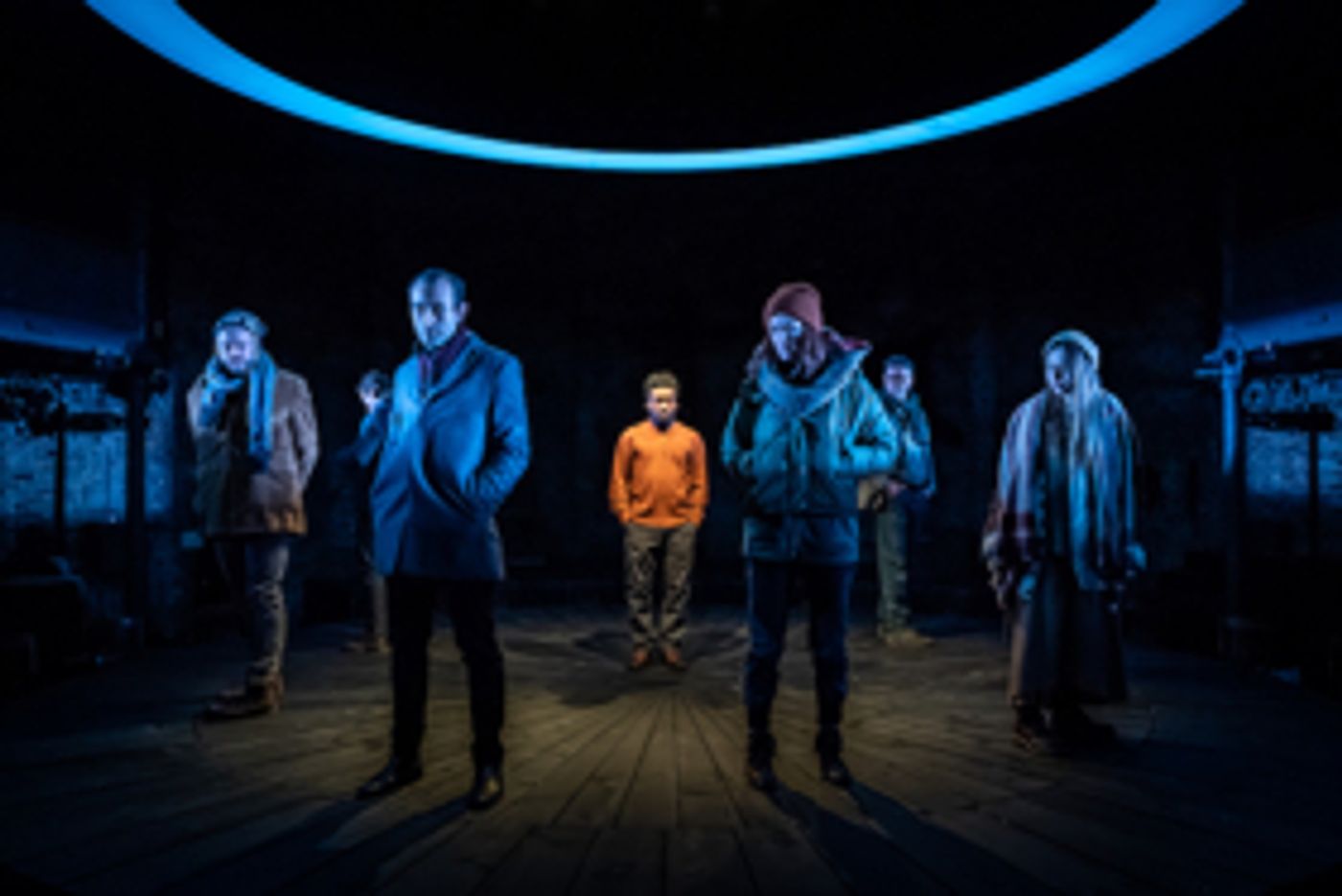Review: SHIPWRECK, Almeida Theatre

![]() "Isn't that the problem with political theater, too much directness?" queries one of Anne Washburn's characters in her new play - which, in meta fashion, and over a leisurely three hours, not only addresses Trump head on, but also painstakingly analyses our responses to the President and the present moment, including the role of the arts.
"Isn't that the problem with political theater, too much directness?" queries one of Anne Washburn's characters in her new play - which, in meta fashion, and over a leisurely three hours, not only addresses Trump head on, but also painstakingly analyses our responses to the President and the present moment, including the role of the arts.
Her conduits are a group of liberal New Yorkers, meeting for a rural retreat in their friends' newly acquired 18th-century farmhouse in June 2017 - just after FBI Director James Comey's firing, and his revelation that Trump had demanded his loyalty at a dubious-sounding private dinner. It's a bold counterargument to the oft-accepted idea, also articulated here, that "art needs time and space and reflection".
The result is a mixed evening of theatre - sometimes electrifying, sometimes maddeningly circular. The group frets about its performative white liberalism and class bubble, yet still debates within a narrow range and from a clear place of privilege. Though their hand-wringing impotence is essentially the point, it's rather obtuse as drama.
Meatier conflict comes from the inevitable, yet still incendiary, revelation "I voted for him" - and from a transgressive perspective that perhaps Trump is a necessary evil, the agent of chaos that the nation requires.
Many of Washburn's human observations ring painfully true, such as the longing for a break from the news cycle, or self-professed campaigner Allie's fury that no one responded to her warnings when Merrick Garland was denied his Supreme Court seat - even though her own actions were limited to virtue-signalling social media posts.
There's baffled discussion around innocence, morality and outright lying, and how Trump has destroyed political and social norms; when did the rules change? These are interspersed with more domestic irritations when a snowstorm traps them in the house, from the hosts' failure to supply food (and guests' failure to bring wine) to personal conflicts - like the reveal that one couple is 1% rich, while another is struggling financially.
More of the latter element would be welcome, as often the characters feel like mouthpieces for commentary. It's more effective when fractured through their particular personalities, as with two of the strongest turns: Justine Mitchell's infuriatingly persistent but understandably desperate Allie, and Tara Fitzgerald's hilarious portrait of the hippy progressive Teresa, deploying a Lord of the Rings analogy with deadpan sincerity.
A couple of fantasy sequences, vividly staged by Rupert Goold, bring Trump himself onstage. These illustrate the points about truth, art and myth-making with more flair and economy than the blunt conversations, as well as giving Elliot Cowan the opportunity to play a gold-painted Caesar of Trump's dreams, pawing the ground like a bull before charging into battle.
But most compelling is a separate plotline (eventually dovetailing with the main one) about a white Christian couple who adopted an African-American son in the Eighties. Told mostly through monologue, Fisayo Akinade is riveting as Mark, grappling with America's legacy of slavery, the way his upbringing has isolated him from black culture and narratives, and how he will, in turn, attempt to explain his nation's racial complexities to his own child.
The Eighties setting is notable for the introduction of MTV and its short-attention-span bombardment of images. That carries through to today's technology-fuelled discourse - overloaded with information and opinion, most supplanted by the next hour's onslaught - and, visually, to Luke Halls' flashing projections on the back wall: contemporary political figures spliced into religious iconography.
Miriam Buether's design places the actors around a circular platform with a revolve (altar meets Arthurian round table), lit by Jack Knowles from above with a huge ring and, eerily, from below through cracks in the floor. That adds to the sense of something looming beneath - both the apparently dodgy foundations of the farmhouse, and the apocalyptic threat to the foundations of our society.
It's a welcome change from work scoring quick points with cartoonish Trump cameos or gags, but debatable whether this is a stronger - or more worthwhile, or effective - dramatic response than more allusive approaches, like The Public Theater's Trump-referencing Julius Caesar, mentioned here. Audiences might wish for more of Washburn's poetic flourishes and dreamlike detours, at least, to break up some of the speechifying.
But this world premiere does capture the present fear, confusion, outright weirdness and tortured fervour - that sense of bickering over form and language with which to address the end times, all while hovering over the mouth of hell. Raquel Cassidy's exhausted host Jools strikes a chord early on when she confesses "I'm scared of everything". And if Shipwreck doesn't quite find a focus for its passions, there is at least a freshness and gravity to its response.
Shipwreck at the Almeida Theatre until 30 March
Read our interview with Justine Mitchell
Photo credit: Marc Brenner
Reader Reviews
Videos

